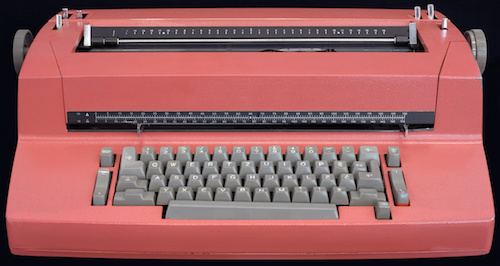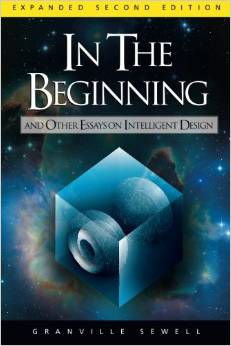 Evolution
Evolution
 Intelligent Design
Intelligent Design
Could a Computer Experience Consciousness? Why Not a Typewriter?

Editor’s note: The following is excerpted from the new expanded edition of Granville Sewell’s book In the Beginning: And Other Essays on Intelligent Design (Discovery Institute Press). References for cited works are given in this book. ENV contributor Dr. Sewell is Professor of Mathematics at the University of Texas El Paso. He has written three books on numerical analysis, and is the author of a widely used finite element computer program.
 One way to appreciate the problem human consciousness poses for Darwinism or any other mechanical theory of evolution is to ask: Is it possible that computers will someday experience consciousness?
One way to appreciate the problem human consciousness poses for Darwinism or any other mechanical theory of evolution is to ask: Is it possible that computers will someday experience consciousness?
If you believe that a mechanical process such as natural selection could have produced consciousness once, it seems you can’t say it could never happen again, and it might happen faster now, with intelligent designers helping this time. In fact, most Darwinists probably do believe it could and will happen — not because they have a higher opinion of computers than I do: Everyone knows that in their most impressive displays of “intelligence,” computers are just doing exactly what they are told to do, nothing more or less.
They believe it will happen because they have a lower opinion of humans: They simply dumb down the definition of consciousness, and say that if a computer can pass a “Turing test,” that is, fool a human at the keyboard in the next room into thinking he is chatting with another human, then the computer has to be considered intelligent, and conscious.
With the right software, my laptop may already be able to pass a Turing test, and convince me that I am Instant Messaging another human. If I type in “My cat died last week” and the computer responds “I am saddened by the death of your cat,” and if I’m pretty gullible, that could convince me that I’m talking to another human. But if I look at the software, I might find something like this:
if (verb == 'died')fprintf(1,'I am saddened by the death of your %s',noun)end
I’m pretty sure there is more to human consciousness than this, and even if my laptop answers all my questions intelligently, I will still doubt there is “someone” inside my Intel processor who experiences the same consciousness that I do, and who is really saddened by the death of my cat, though I admit I can’t prove that there isn’t.
I really don’t know how to argue “scientifically” with people who believe computers could be conscious. About all I can say is: What about typewriters? Typewriters also do exactly what they are told to do, and have produced some magnificent works of literature. Do you believe that typewriters can also be conscious?
And if you don’t believe that intelligent engineers could ever cause machines to attain consciousness, how can you believe that random mutations could accomplish this?
Image: Dario Sabljak / Dollar Photo Club.
